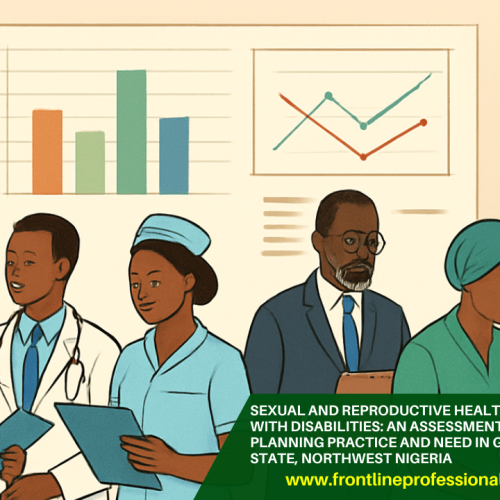Chiejine Gibson Ifechukwude , Nkiru Ezeama , Duluora Nneka Chidimma , Ngozi Miriam Amadi , Isenalumhe Ade Salami , Ogbiti Mark Imhonikhe , Handich Tarila Kai , Ohi Esther Sunday.
Correspondence: Chiejine Gibson Ifechukwude: drgib2002@gmail.com.
Citation: Chiejine Gibson Ifechukwude, Nkiru Ezeama, Duluora Nneka Chidimma, Ngozi Miriam Amadi, Isenalumhe Ade Salami, Ogbiti Mark Imhonikhe, Handich Tarila Kai, Ohi Esther (2024) Intimate partner violence in pregnancy: disclosure patterns and coping perceptions. Frontline Professionals Journal, 1(1), 25–36
ABSTRACT
Intimate partner violence in pregnancy is a significant public health challenge with severe consequences on the mother, the unborn child and the society. Understanding the disclosure patterns is critical for effective interventions. The study assessed the disclosure pattern and coping perceptions of Antenatal attendees exposed to intimate partner violence. It implored a cross-sectional descriptive study with sample size of 400. The prevalence of IPV in pregnancy was 27.3%. Among the respondents who experienced IPV, 53.4% (86) did not disclose it. Among those that reported, 29.3% reported to health workers, 20.0% to their parents/siblings and 19.0% committed their spouse to praying. Factors that were statistically associated with disclosure of IPV were educational level (χ2: 15.023; P-value: 0.02), place of residence (χ2: 8.019; P-value: 0.018), and living arrangement (χ2: 8.834; P-value: 0.012).Most of the respondents (74.3%) said they are coping fine; 13.3% are managing to cope and 5.7% find it stressful coping with IPV. Raising awareness, screening pregnant women, and demonstrating political will ameliorate IPV in pregnancy.







